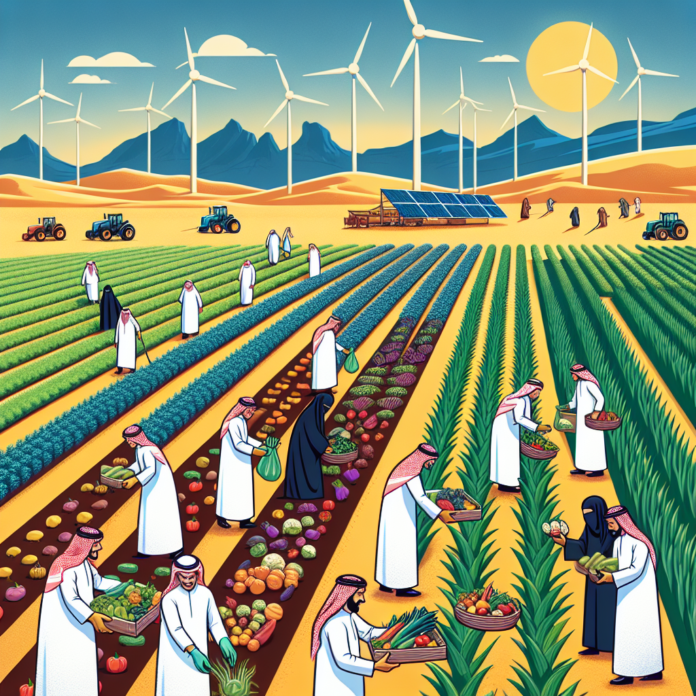Innovative Sustainable Agriculture in Saudi Arabia: Adapting to Climate Change
Summary:
Saudi Arabia is adopting innovative and sustainable farming practices to combat the adverse effects of climate change on agriculture, which threatens food security, livelihoods, and water access. The nation is implementing methods like the use of treated water for irrigation and soilless farming techniques, including vertical farming and hydroponics, which save significant amounts of water.
The National Research and Development Center for Sustainable Agriculture (Estidamah) is leading efforts to optimize crop production, particularly for leafy vegetables and strawberries, demonstrating the viability and high yield potential of these technologies. The Ministry of Environment, Water, and Agriculture has allocated SR100 million to support these initiatives.
Wadi Bin Hashbal, a mega farm in the Asir region, exemplifies Saudi Arabia’s commitment to sustainable agriculture. Recognized by Guinness World Records, the farm uses treated municipal and industrial wastewater for irrigation, supporting a variety of crops and trees. Advanced monitoring of water and soil quality ensures optimal growing conditions.
These sustainable practices present a hopeful model for other climate-vulnerable nations struggling with water scarcity and rising temperatures, proving that agriculture can thrive even in harsh environments.


